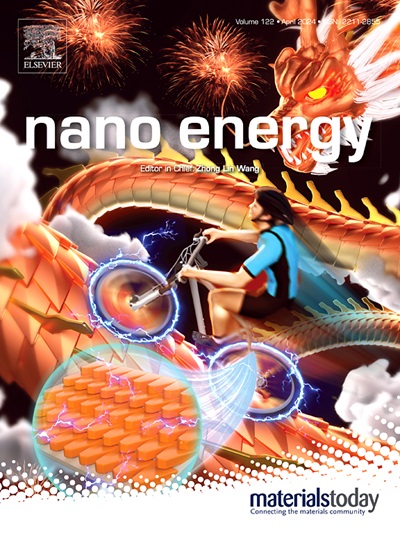Micro/nano self-powered device based on interface regulation strategy
IF 16.8
1区 材料科学
Q1 CHEMISTRY, PHYSICAL
引用次数: 0
Abstract
Micro/nano self-powered devices offer innovative solutions for efficient energy conversion, driving advancements in wearable devices, the Internet of Things (IoT), and artificial intelligence technology. The interface regulation strategies can accurately change the interface properties via interface defect control, composite materials preparation, heterojunction design, and other methods and significantly impact the performance improvement of micro/nano self-powered devices. Extensive efforts have been focused on leveraging this strategy to optimize the functionality of the devices. However, the prominent research advances in terms of electronics, micro/nano self-powered devices, and their relationship have not been systematically reviewed, which is highly attractive for advanced micro-type low-energy consuming devices. This study focuses on reviewing interface regulation strategies and exploring their varied applications in micro/nano self-powered devices. It summarizes the latest research developments and comprehensively outlines the crucial role of interface regulation strategies for ensuring stability, optimizing performance, and expanding the application potential of micro/nano self-powered devices. The comprehensive outlook in this review proposes a roadmap for ongoing and future research endeavors in the ever-evolving field of low-energy electronics.

求助全文
约1分钟内获得全文
求助全文
来源期刊

Nano Energy
CHEMISTRY, PHYSICAL-NANOSCIENCE & NANOTECHNOLOGY
CiteScore
30.30
自引率
7.40%
发文量
1207
审稿时长
23 days
期刊介绍:
Nano Energy is a multidisciplinary, rapid-publication forum of original peer-reviewed contributions on the science and engineering of nanomaterials and nanodevices used in all forms of energy harvesting, conversion, storage, utilization and policy. Through its mixture of articles, reviews, communications, research news, and information on key developments, Nano Energy provides a comprehensive coverage of this exciting and dynamic field which joins nanoscience and nanotechnology with energy science. The journal is relevant to all those who are interested in nanomaterials solutions to the energy problem.
Nano Energy publishes original experimental and theoretical research on all aspects of energy-related research which utilizes nanomaterials and nanotechnology. Manuscripts of four types are considered: review articles which inform readers of the latest research and advances in energy science; rapid communications which feature exciting research breakthroughs in the field; full-length articles which report comprehensive research developments; and news and opinions which comment on topical issues or express views on the developments in related fields.
 求助内容:
求助内容: 应助结果提醒方式:
应助结果提醒方式:


